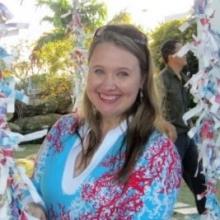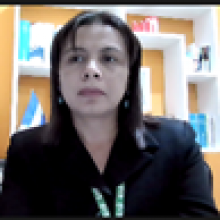- Reflect critically on their own language learning processes as they work with their partners.
- Articulate in Spanish why (and why not) and how people in their country and in other countries learn additional languages, including Spanish.
Student-to-Student Project
Asynchronous Activities: 0 hours
Local Group Activities: 2 hours
Individual Work: 1 hour
Messaging Applications (WhatsApp)
Learning Management Systems (Canvas)
Collaborative Authoring Platforms (Google Docs)
Messaging Boards/ Video Boards (Flipgrid)
1. Orientation: A document shared with both classes served as the orientation for the pilot project. The document listed the student learning outcomes of the project, the calendar of activities, and the description of each activity.
2. Icebreaker: Using Flipgrid, students introduce themselves and explain/show what a day in their life as a university student is like (1-1:30 minutes). Other students would then view and comment on 7-8 students’ videos.
3. Student-to-student collaboration:
- Synchronous Zoom session where the instructors describe the project in more detail (introduction), followed by 30-35 minutes in breakout rooms for small group conversations. As an icebreaker within that group, students will share their screen to show a photo that they think represents them.
- Groups will meet synchronously at least one time during the project to discuss their own learning experiences and others’ learning experiences learning additional languages in their country.
- (future) Groups will select one country to learn more about the use of Spanish and teaching and learning in Spanish in that country. They will create a brief video presentation to share their research.
4. Reflection:
- Each student writes a reflection of 375-450 words on a shared Google doc to explain what they learned from the conversation/s with their colleagues, how the language learning experiences in their countries are similar and different, etc.
- Students in their respective classes (UF’s SPN 3533, UTH’s Spanish and English) will spend at least 45 minutes for an in-class debriefing session to discuss what they learned (including things that may have surprised them), how they met the goals (SLOs) of the project (or not), what went well in the project and what could be revised for the future, etc.
5. Assessment:
-During the pilot phase, project activities were assessed as complete/incomplete (that is, full credit or none) in order to reduce the pressure of working with a large group in another country and to allow for risk-taking. That is especially true since the pilot project focused mostly on interpersonal experiences rather than presentational ones.
-Future iterations will see the group presentation on Spanish in X country graded using a performance-based rubric


